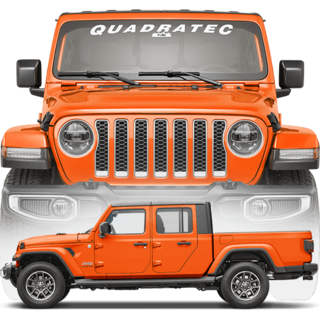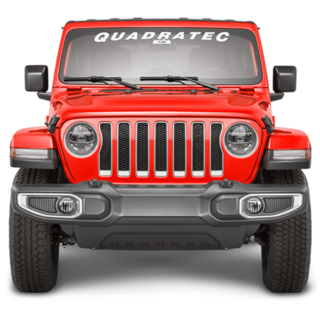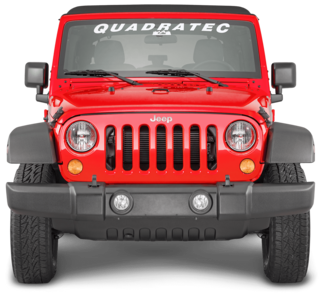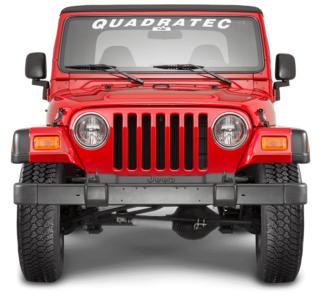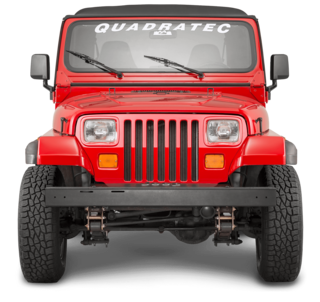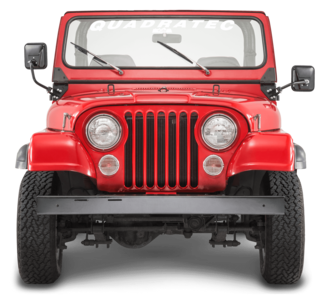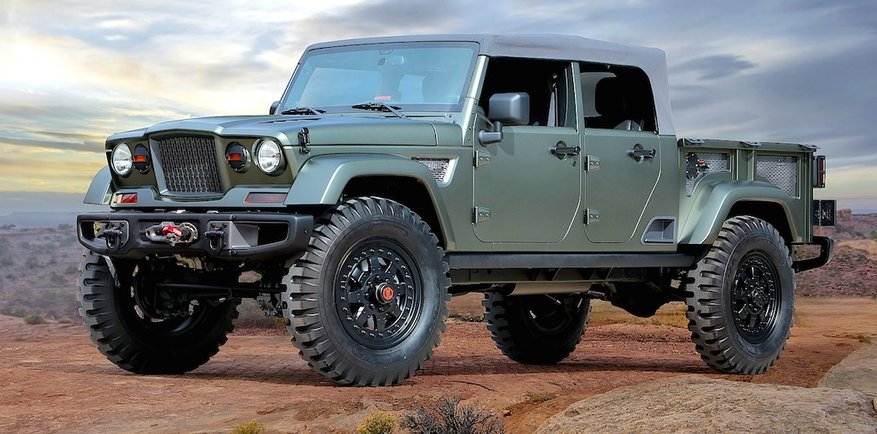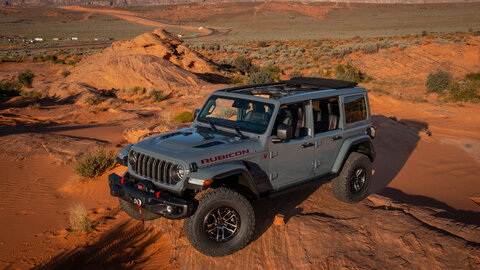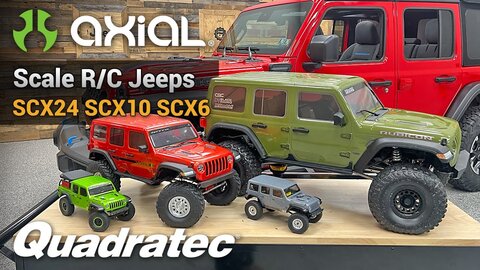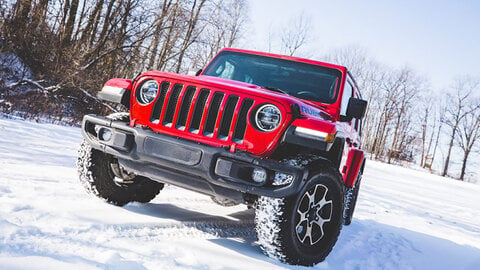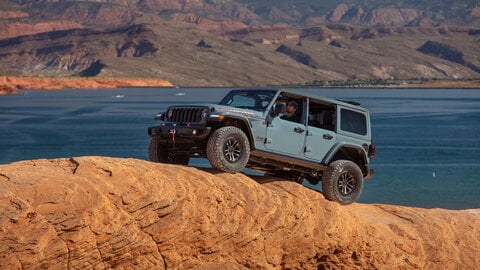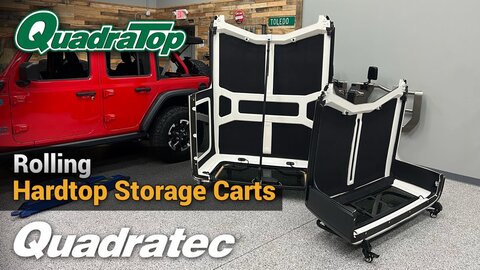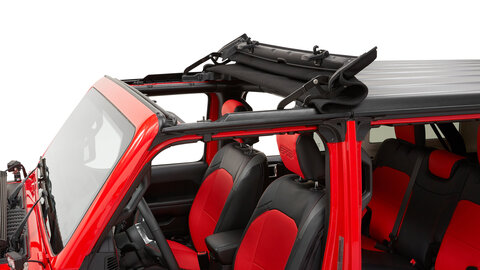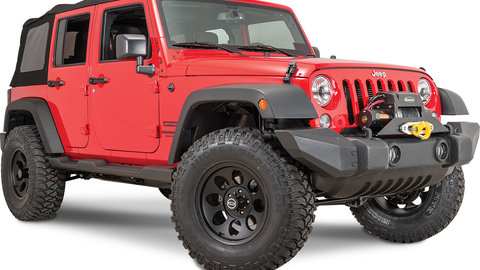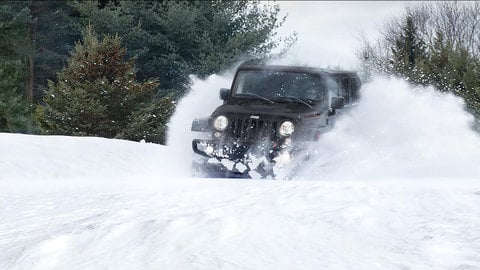When Fiat Chrysler Automobiles made the decision not to unveil any new vehicles this week during the North American International Auto Show in Detroit, a lot of people were left scratching their heads.
After all, it would mark the first time since 2010 that FCA didn’t have something new to show off – even though the brand does have a new Wrangler and Ram truck on the horizon.
Well, turns out the automaker did have something to show off in Detroit. A billion somethings, actually. As well as confirmation a familiar nameplate is returning to the fold.
FCA surprised just about everyone Sunday afternoon by officially announcing plans to invest $1-billion over the next few years to retool the company’s Warren (MI) and Toledo (OH) plants. In the process, FCA also confirmed the Wagoneer nameplate is alive and well, and will be produced at the revamped Warren facility, while its JT Wrangler pickup is coming to Toledo.
For the Wagoneer, Sunday’s proclamation officially cements the vehicle in FCA’s future plans as the automaker had appeared to waffle lately on whether the Wagoneer would even make it to market because of internal design hurdles. However, retooling the Warren plant specifically for Wagoneer models will provide the company much-needed space and production capacity it needs to implement the vehicle’s body-on-frame design.
“The expansion of our Jeep lineup has been and continues to be the key pillar of our strategy,” said Sergio Marchionne, Chief Executive Officer of FCA in a company release. “In addition, these all-new products will reach new consumers, as well as those that have been part of the Jeep tradition.”
FCA said that the plant investments and retooling would be completed by 2020 and create around 2,000 jobs between Warren and Toledo. As an added benefit, FCA said it could also use the Warren line to produce Ram heavy-duty trucks domestically, should the country’s trade regulations change when President-elect Donald Trump takes office. Ram-branded trucks are currently built in Mexico.
However, Marchionne said Monday that moving production from Mexico to Detroit is not set in stone, and the company will wait for more clarity from the incoming US administration before taking action. FCA also said these plant changes were in motion before Trump’s series of tweets regarding free-trade issues and his opposition to the North American Free Trade Agreement.
“The conversion of our industrial footprint completes this stage of our transformation as we respond to the shift in consumer tastes to trucks and SUVs, and as we continue to reinforce the U.S. as a global manufacturing hub for those vehicles at the heart of the SUV and truck market,” Marchionne said. “These moves, which have been under discussion with Dennis Williams and the rest of the UAW leadership for some time, expand our capacity in these key segments, enabling us to meet growing demand here in the U.S., but more importantly to increase exports of our mid-size and larger vehicles into international markets.”
The Wagoneer was the first of a series of full-size Jeeps introduced by Kaiser Motors in the early 1960s, and the Wagoneer nameplate was used on the full-size wagons until 1983.
The new Wagoneer and Grand Wagoneer will be rugged, body-on-frame higher-end SUVs that will seat seven or eight people. Marchionne has previously said the Wagoneer will be Jeep's premium nameplate, capable of competing against rival SUV manufacturer Land Rover, as well as Ford, GM and Toyota.
"The Wagoneer name represents, historically, the pinnacle of premium for the Jeep world," Marchionne said last year. "But in the same way as you may have an Overland and a Summit, you have different trim levels. So you could imagine the use of Wagoneer to denote a really premium vehicle, and Grand Wagoneer takes it to the very next level. If you were to use that as your naming strategy, that's exactly how I would use the trims."
FCA made room to re-invest at Warren by moving its Cherokee production to another facility in Belvidere, Ill.
The Jeep JT Pickup, meanwhile, is expected to go into production later in 2018 alongside the next-generation Wrangler JL. FCA said earlier this year it would build both the current JK Wrangler and JL side by side from November 2017 through March 2018, after which it would close down the JK line to re-tool for JT production.
"I am a huge fan of a pickup truck in the Jeep brand,” said Mike Manley, head of FCA’s Jeep brand. “Not just because of the history — it has been part of our history over the years — but also because it is one of the top subjects of topics that we have for discussion with our customers.”
FCA originally announced last January it was planning to stop production of several slower-selling (and less profitable) passenger cars in its lineup, in favor of ramping up SUV and truck production.
FCA said Sunday’s announced investments are subject to negotiations and approval of tax incentives by local and state governments. The company did not list how much would be invested in each plant or how many new jobs would be created at the respective locations.

